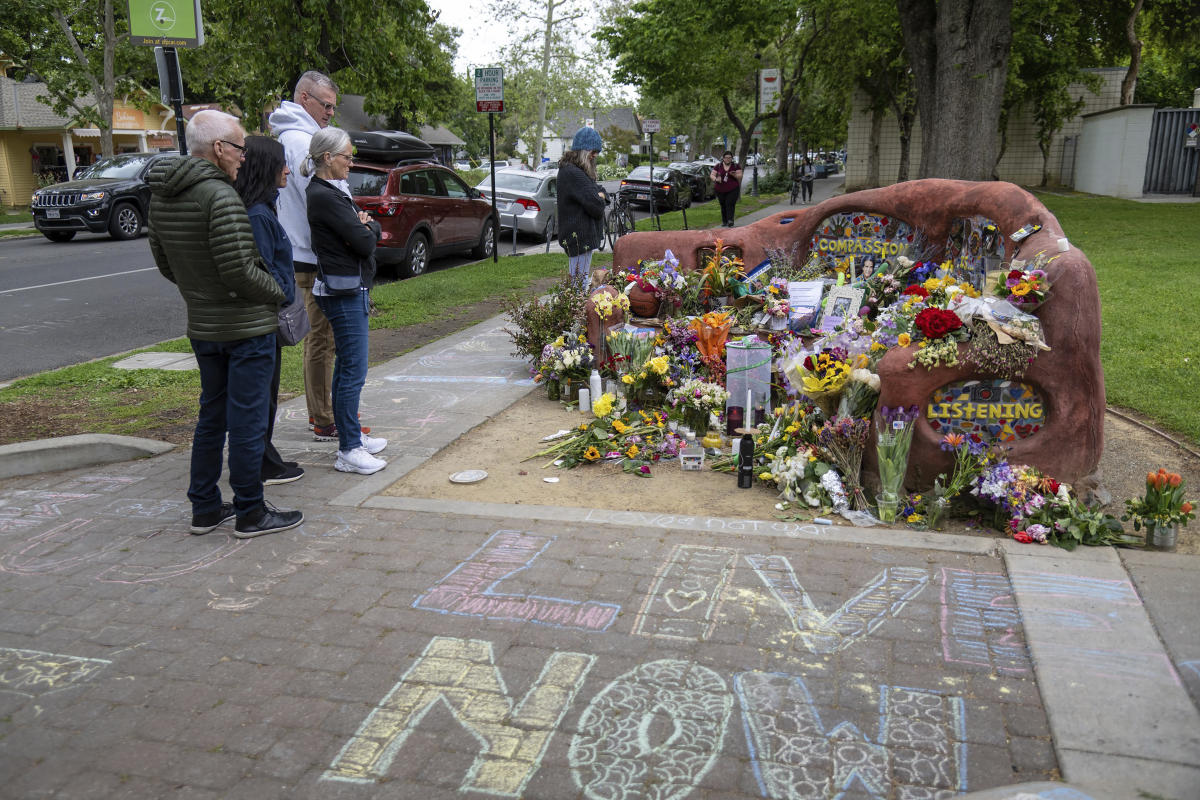#Biden seems utterly clueless about Europe’s realities ahead of his trip

“#Biden seems utterly clueless about Europe’s realities ahead of his trip”

“America is back,” said President Joe Biden after he was elected, signaling a reversal of his predecessor’s supposedly isolationist approach. But as he sets out across the pond for a visit with European leaders, Biden’s pitch is likely to fall flat: The new president lacks a coherent plan to convince Europeans that America is still the most desirable ally on the world stage.
Instead of focusing on China’s rise and the Islamist threat on the Continent — two central challenges facing the trans-Atlantic alliance — Biden is set to offer vague platitudes about climate change and a global corporate tax.
“Can democracies come together to deliver real results for our people in a rapidly changing world?” Biden asked in an op-ed ahead of his visit. “I believe the answer is yes.”
But do Europeans share this optimism? Some two-third of those polled recently by the European Council on Foreign Relations believe the US political system is broken, and a third believe that Americans are “more likely to be so consumed by internal problems and divisions” as to leave little room for foreign affairs.
More alarming still for Team Biden: Nearly 60 percent of Europeans think China will definitely or likely eclipse the United States as the world’s preeminent power, and the same share would like their country to remain neutral in a potential confrontation between the two giants.
Chinese investment in struggling European economies is growing. Biden claims that “market democracies, not China or anyone else, write the 21st-century rules around trade and technology.” Really?
It’s precisely the West’s market mentality and globalist dreams that made Beijing stronger: The Chinese Communist Party used the opening offered by the United States and Europe to cement its own economic power. The West believed “free trade” with China would be a mutual give and take; Beijing pocketed Western concessions, often at the expense of workers, without opening its own economy to nearly the same degree.
Now China seeks to use investments in Europe as a political weapon, to further its ambitions for global dominance.
The Belt and Road Initiative, China’s multitrillion-dollar infrastructure scheme launched in 2013 by President Xi Jinping, offers development projects stretching from East Asia through Africa — and into Europe. Biden speaks of offering an “alternative” to China by “upgrading digital, physical and health infrastructure” in Europe. But besides COVID vaccines, what real alternatives is the US offering, in terms of physical and digital infrastructure?
When it comes to next-generation 5G telecom infrastructure, the European Union has resolved that it won’t explicitly ban China’s Huawei, despite intense American lobbying, but rather mitigate security risks. How will Team Biden address this, concretely speaking? Climate babble won’t help.
Europe also has to deal with a potential new security threat, as the rolling migrant crisis resumes after a “break” during the pandemic. Europe’s Mediterranean neighbors in North Africa are a cause for concern: Libya remains a shattered state, and it might continue to be a transit route for migrants seeking to reach European shores.
Since the 2015-16 migrant crisis, Europe has been dealing with a rise in Islamist terrorist attacks and struggling to assimilate more than a million newcomers. The crisis, however, seemingly isn’t even on Biden’s radar, though it’s paramount for millions of Europeans.
Instead, Biden stressed his commitment to NATO. But NATO is struggling with internal quarrels between Turkey and some of its European members. A once secular republic, Turkey has become an Islamist, nationalist country under President Recep Tayyip Erdogan, with aspirations for a kind of neo-Ottoman imperialism. Greece, also a NATO member, has recently warned it will push for sanctions against Ankara over energy disputes in the Aegean and Mediterranean seas. Can anyone imagine a divided and exhausted NATO responding seriously to future crises?
Then there’s the Kremlin. Biden stresses that he seeks to address “Russia’s challenges to European security.” But Germany and, by extension, much of Western Europe is deepening ties with Moscow. The Nord Stream 2 pipeline supplying natural gas from Russia to Europe continues to be built, despite US opposition — which, incidentally, was more intense under the supposedly pro-Russia Trump administration.
These and other deals are being negotiated with or without American approval. Is the Biden administration even aware of the new dynamics reshaping the old Continent? Does it know how to offer a renewed sense of US commitment to Europe? The bland talk about climate and “America is back” suggests otherwise.
Alessandra Bocchi is the Joseph Rago Memorial Fellow at The Wall Street Journal.
Twitter: @AlessaBocchi
If you liked the article, do not forget to share it with your friends. Follow us on Google News too, click on the star and choose us from your favorites.
For forums sites go to Forum.BuradaBiliyorum.Com
If you want to read more News articles, you can visit our News category.




